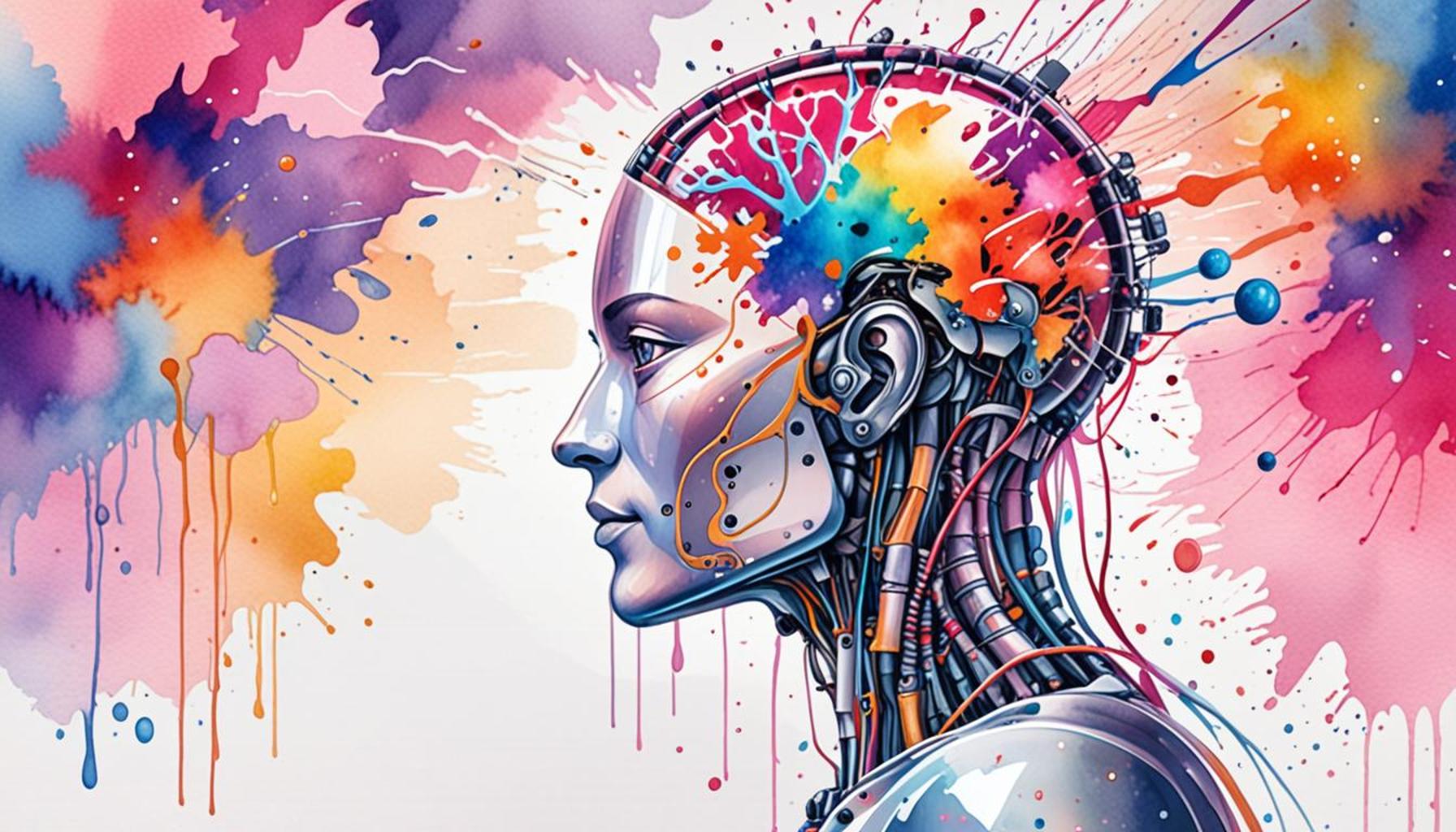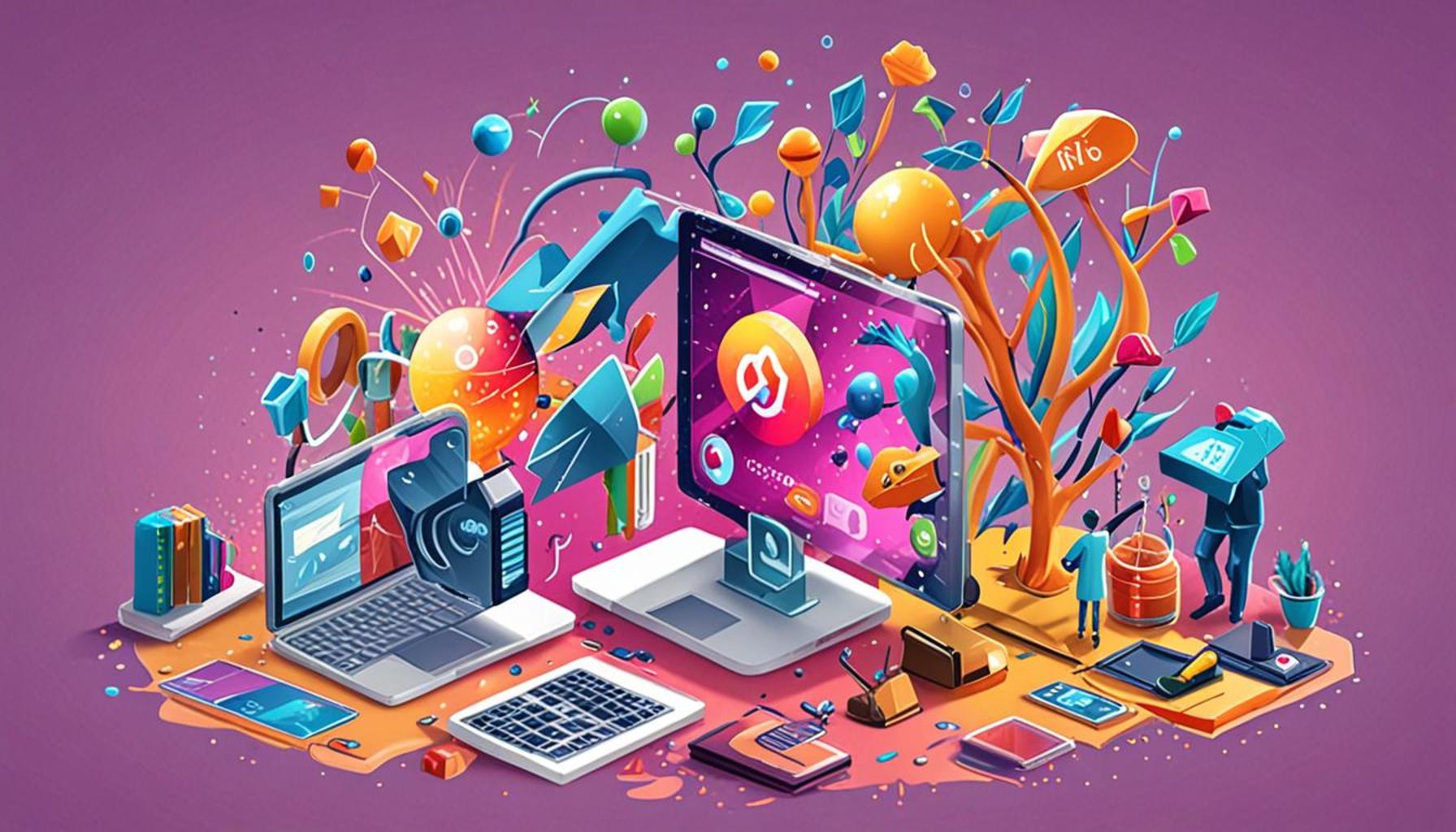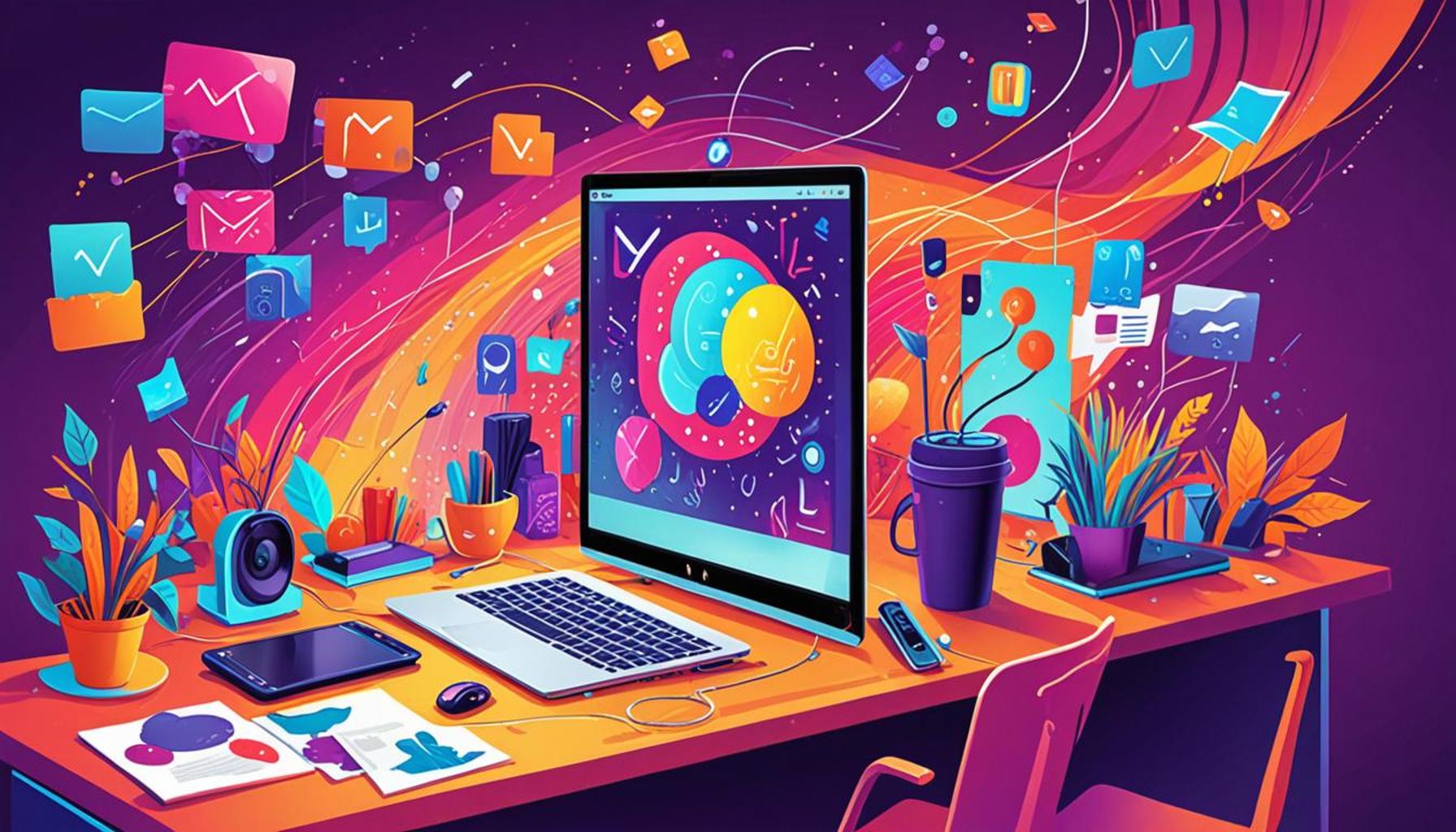How Artificial Intelligence is Transforming Online Digital Marketing Strategies

Understanding the Power of AI in Digital Marketing
In today’s fast-evolving digital landscape, businesses are consistently seeking innovative ways to remain competitive and relevant. One of the most disruptive forces reshaping the industry is Artificial Intelligence (AI), which has profoundly influenced online marketing strategies. As companies recognize the need to optimize their outreach and engagement, AI technologies offer powerful tools that can be leveraged to enhance marketing efforts significantly.
Enhancing Personalization
At the heart of AI’s impact on marketing is personalization. Utilizing advanced algorithms, AI can analyze massive datasets to understand individual consumer preferences and behaviors. For example, streaming services like Netflix and music platforms like Spotify use AI to tailor recommendations based on users’ past interactions, leading to a more engaging experience. This level of personalization extends to email marketing, where platforms can send tailored messages that address particular customer interests, significantly improving open and conversion rates.
Streamlining Automation
Automation stands out as another significant advantage of AI. Businesses can employ AI tools to streamline various repetitive tasks, such as social media postings, email responses, and customer interactions. For instance, marketing teams at companies like HubSpot now utilize AI-driven software to schedule posts and analyze engagement metrics, which saves valuable time. This automation not only allows marketers to focus on strategic planning but also ensures that content is timely and relevant, thus maximizing audience engagement.
Transforming Data Analysis
The capability of AI to process and analyze massive amounts of data has revolutionized the way businesses derive insights and make informed decisions. Using machine learning algorithms, companies can identify patterns in consumer behavior that may not be immediately apparent. For example, e-commerce giants like Amazon harness this power to predict what products a customer may want to purchase next based on their browsing history, which can further enhance upselling opportunities and drive sales.
Providing 24/7 Customer Service
Moreover, AI-powered chatbots have emerged as a game-changer in customer service. With the ability to interact with users 24/7, these bots can answer queries, guide users through processes, and even handle transactions. Businesses like Sephora, for example, have implemented AI-driven chatbots to assist customers in making product selections, thereby enhancing the overall shopping experience and ensuring that user satisfaction remains high.
Predicting Consumer Needs
One of the most exciting aspects of AI in marketing is its ability to predict consumer needs. By analyzing past behaviors, AI can forecast future purchasing patterns, allowing businesses to create targeted campaigns that meet anticipated demands. This proactive approach not only improves marketing efficiency but also helps in optimizing pricing strategies, making it beneficial for companies in highly competitive markets like retail.
As the digital world evolves, the influence of AI on marketing strategies becomes increasingly vital for businesses aiming for long-term customer retention and market leadership. Understanding these advancements will not only help companies adapt to changing consumer expectations but also empower them to innovate and stay ahead in their respective industries.
In conclusion, it is crucial for organizations to embrace AI technologies as they reshape the marketing landscape. By exploring the ways in which AI is transforming online marketing strategies, businesses can position themselves effectively and foster meaningful connections with their audiences.
ADDITIONAL INSIGHTS: Expand your understanding here
Revolutionizing User Experience and Engagement
As businesses increasingly turn to artificial intelligence, the user experience has become a primary focus area for digital marketing strategies. AI technologies provide invaluable insights that enhance user engagement while making interactions more intuitive and meaningful. Through predictive analytics and behavioral tracking, companies can craft incredibly personalized experiences that resonate with individual users.
For instance, advanced AI algorithms allow marketers to create dynamic content tailored to users’ preferences. This can be seen in targeted advertisements on social media platforms or customized website landing pages that change based on user behavior, location, and past interactions. Recent studies have shown that personalized marketing campaigns can yield up to a 6x higher conversion rate compared to non-personalized messages. This not only boosts sales but also fosters long-term customer loyalty.
The Role of Natural Language Processing
Natural Language Processing (NLP) is another critical component of AI that is reshaping how brands communicate with consumers. With advances in NLP, businesses are better equipped to understand and respond to customer inquiries across various platforms seamlessly. Automotive manufacturers, for instance, are now utilizing AI-driven chat solutions that can answer customer queries or provide maintenance advice based on natural language commands.
- Voice Search Optimization: With the rise of smart speakers like Amazon Alexa and Google Home, brands must optimize their content for voice search. AI can help identify the most popular voice search queries and trends, allowing companies to fine-tune their keywords and messaging accordingly.
- Sentiment Analysis: AI can analyze customer feedback on social media platforms, blogs, and review sites to gauge public sentiment about products or services. This data can be crucial for brands to understand customer pain points and adjust their strategies proactively.
- Content Creation: AI tools, such as GPT-3, can aid businesses in generating blog posts, newsletters, or social media content with minimal human intervention. This not only speeds up content creation but also helps brands maintain consistency and relevance in their messaging.
Enhanced Targeting and Segmentation
AI techniques also improve targeting and segmentation in digital advertising. Traditional methods often rely on broad demographic information, but AI enables marketers to delve deeper into psychographics, interests, and behaviors. This granularity allows for more precise audience segments, ensuring that marketing messages reach the right people at the right time.
For example, Facebook advertisers are leveraging AI to identify lookalike audiences—users who share similar characteristics to existing customers. By targeting these potential customers, businesses can significantly increase their chances of conversion while reducing wasted ad spend. The result is a more effective digital marketing strategy that not only maximizes return on investment but also cultivates a deeper connection with consumers.
As AI technology continues to evolve, businesses that harness its capabilities in user experience, communication, and targeting will undoubtedly find themselves at the forefront of digital marketing innovation. Adopting these strategies enables brands to remain competitive while fostering a loyal customer base, ultimately driving consistent growth and success in a fast-paced market.
Harnessing AI for Enhanced Personalization
The evolution of artificial intelligence (AI) in online digital marketing has ushered in a new era of personalization. Brands can now tailor their offerings to meet the unique preferences and behaviors of individual customers. This transformation significantly enhances customer engagement. For example, AI-driven algorithms analyze vast amounts of data to identify patterns in consumer behavior, leading to personalized recommendations that resonate with users. As a result, businesses can provide relevant content and product suggestions that increase conversion rates and customer satisfaction.
Optimizing Marketing Campaigns with Predictive Analytics
Predictive analytics, powered by AI, offers marketers the ability to anticipate customer needs and optimize campaigns accordingly. By analyzing historical data, AI systems can forecast future trends, allowing businesses to allocate resources more effectively. This proactive approach not only reduces marketing waste but also ensures that the right message reaches the right audience at the right time. Companies leveraging predictive analytics have reportedly seen a significant increase in ROI from their marketing efforts, showcasing the vital role AI plays in strategic decision-making.
Streamlining Customer Interactions with Chatbots
Another significant way AI is transforming digital marketing is through the integration of chatbots. These AI-powered tools enhance customer service by providing immediate responses to inquiries, thus improving user experience. Chatbots operate 24/7, ensuring that customers receive assistance whenever they need it. They can handle multiple interactions simultaneously, allowing businesses to optimize their resources and focus on complex inquiries that require human intervention. The ability of chatbots to learn from interactions also means they become smarter over time, ultimately leading to more satisfying customer experiences.
| AI in Marketing | Impact |
|---|---|
| Personalization | Enhances customer engagement through tailored content |
| Predictive Analytics | Optimizes campaign resource allocation and increases ROI |
| Chatbots | Provides 24/7 customer support, improving user satisfaction |
As the digital landscape continues to evolve, the integration of AI technologies is poised to become even more crucial in shaping effective marketing strategies. Businesses that embrace these advancements will not only enhance their operational efficiency but also foster stronger relationships with consumers, ultimately driving growth in an increasingly competitive marketplace.
YOU MAY ALSO LIKE: Read read another article
Transforming Data Analytics and Insights
In the realm of digital marketing, data is king. The rise of artificial intelligence has dramatically transformed how marketers analyze and leverage data to inform their strategies. Organizations are now equipped with sophisticated tools that facilitate real-time data analysis, enabling them to glean actionable insights that were previously unattainable.
One significant advantage that AI offers is the ability to process vast amounts of data at lightning speed. With machine learning algorithms, businesses can harness data from multiple sources—such as social media interactions, website traffic, and purchase history—to create comprehensive consumer profiles. These profiles help marketers identify patterns and trends, tailoring their approaches to meet evolving consumer needs effectively.
Predictive Analytics and Trend Forecasting
Predictive analytics is revolutionizing the way marketers forecast consumer behavior and market trends. By utilizing historical data, AI can identify trends that indicate future consumer actions, enabling businesses to adjust their marketing strategies proactively. For example, retailers can predict upcoming buying trends based on seasonal data and previous sales, optimizing inventory and promotional plans before peak periods.
- Churn Prediction: Companies are also utilizing AI to determine which customers are more likely to disengage, allowing them to implement targeted retention strategies. By analyzing user behavior, marketers can identify warning signs early and engage customers to address concerns and reinforce loyalty.
- Market Basket Analysis: AI-driven algorithms can analyze consumer purchasing behavior to create more effective upsell and cross-sell strategies. For instance, grocery stores can utilize market basket analysis to suggest complementary products, significantly increasing the average transaction value.
- Dynamic Pricing: AI technology also enables businesses to implement dynamic pricing strategies, allowing prices to fluctuate based on demand, competition, and inventory levels. Travel companies often employ this strategy to optimize revenue during peak booking seasons by increasing prices for high-demand flights or accommodations.
Automating Marketing Campaigns
Another area where AI is making waves is in automating marketing campaigns. With the advent of AI-driven marketing platforms, brands can streamline their marketing efforts—eliminating manual, repetitive tasks that often drain resources. For example, email marketing tools powered by AI can segment audiences, personalize content, and send automated follow-up messages based on user interactions, all while optimizing delivery times for the highest open rates.
This adaptability not only saves time and reduces human error but also enhances the overall effectiveness of campaigns. A recent report by McKinsey highlighted that companies employing automated marketing strategies see a 30% increase in marketing efficiency and outcomes due to reduced operational costs and enhanced targeting efforts. With AI, marketers can focus on creative strategy while the technology handles data-driven tasks.
As artificial intelligence continues to shape the landscape of digital marketing, businesses that invest in these innovations will likely experience significant advantages over competitors. The fusion of data analytics, predictive insights, and automated processes fuels a comprehensive approach to marketing, paving the way for increased customer satisfaction and brand loyalty.
RECOMMENDED: Check out this similar article
Conclusion
The transformation brought by artificial intelligence in online digital marketing strategies is nothing short of profound. As industries embrace AI-driven technologies, the ability to harness data analytics, predictive insights, and marketing automation becomes crucial for staying competitive in an increasingly crowded marketplace. This technology allows businesses to not only analyze consumer behavior but also to forecast trends and dynamically adapt their strategies to fulfill evolving customer needs.
Moreover, the power of AI in automating marketing campaigns enhances efficiency and precision, freeing marketers to focus on creative strategy rather than mundane tasks. The ability to create hyper-personalized customer experiences, strengthen customer retention with targeted interventions, and optimize pricing strategies in real-time is reshaping the way brands connect with their audiences. As evidence suggests, companies leveraging these advanced tools see greater ROI and heightened engagement rates—further emphasizing the speed at which AI is reconfiguring the marketing landscape.
For businesses in the United States striving to remain at the forefront of their industries, adapting to AI-enhanced digital marketing is not merely an option but a necessity. As we move forward, those willing to invest in and integrate AI technologies into their marketing strategies will likely find themselves not only surviving but thriving in the ever-evolving digital age. Exploring AI’s full potential can unlock unparalleled opportunities for enhancing brand loyalty and driving growth, positioning them advantageously in a market that is continuously evolving.


